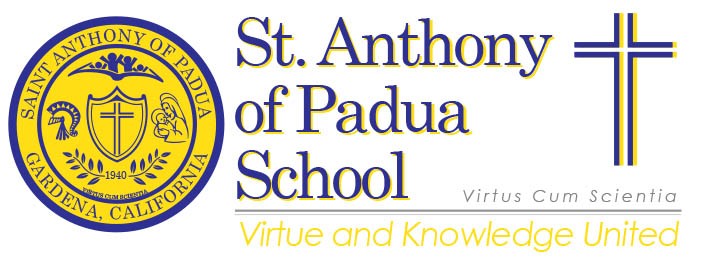Academic Dishonesty
Plagiarism and cheating should never be acceptable and consequences should be clear for these violations. If someone copies another person’s work and that person allowed it to happen, both will get consequences.
deliberate lying and/or the falsifying of information; cheating, plagiarizing, or copying another student's work, (this includes the loss of credit for the assignment or test for the student);
AI
It is already a violation of policy for students to represent work they did not do as their own, and work generated by an AI system falls under that policy.
School handbook policy: At St. Anthony of Padua Catholic School, students are expected to complete all their work independently, including process work, drafts, brainstorming materials, and final projects, as instructed by their assignments. The school's policy defines the following actions as violations of academic integrity:
- Having another person or entity complete a significant portion of a graded assignment
- Purchasing work from a company
- Hiring someone or a company to complete an assignment or exam
- Using generative AI tools (such as ChatGPT, Grammarly, etc.)
Teacher’s syllabus: In this course, every element of class assignments must be fully prepared by the student. The use of generative AI tools for any part of your work will be treated as plagiarism.
Plagiarism
St Anthony of Padua School DEFINITION: Plagiarism is copying someone else's work or ideas and presenting them as your own. This includes using any kind of material, published or unpublished, in printed or electronic form. It also covers material created with the help of artificial intelligence. Plagiarism can also involve reusing your own work without giving credit.
Academic infractions, which carry detention and possible suspension penalties, include, but are not limited to:
Copying another student’s answers on assignments or tests.
Discussing answers during class examinations.
Using or in possession of unauthorized notes or materials during a test.
Cheating or cooperation in cheating on a quiz or test.
Having teacher copies of tests, teacher edition books, or other testing materials.
Unauthorized use of information, materials, devices, sources or practices in completing academic activities.
A student who allows another student to copy from his or her work is considered to be facilitating or contributing to cheating or plagiarism. All individuals involved will face consequences.
Sharing, stealing, forwarding, or photographing major assignments, essays, projects, or exams.
Academic infractions will also result in an “F” or “0” in the grade book and detention for the assignment in question.
Teacher’s Syllabus: Unique to your subject and how students can attain work that is not their own.
Ex. English: AI, copying during group work, purchasing answer material online.

